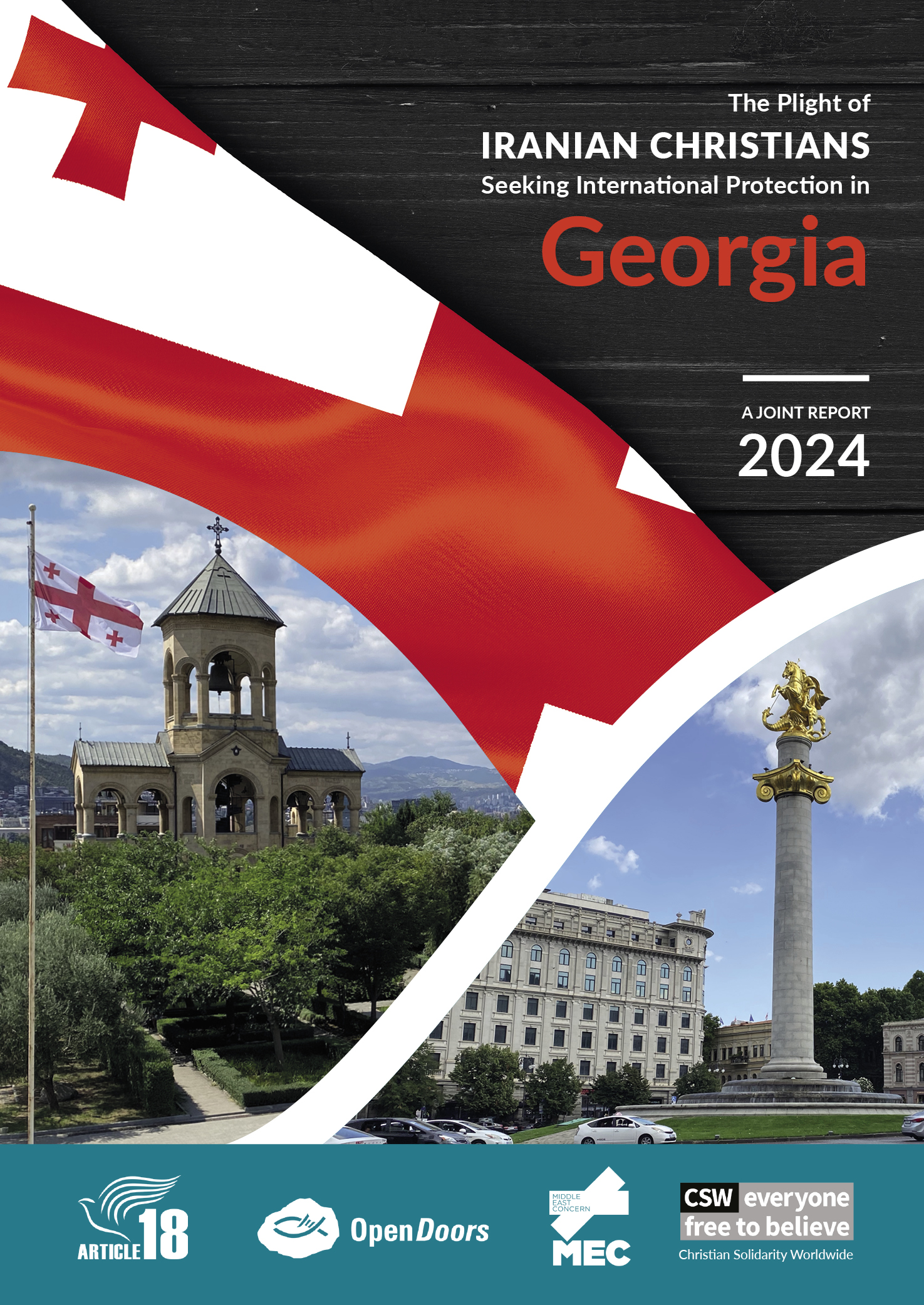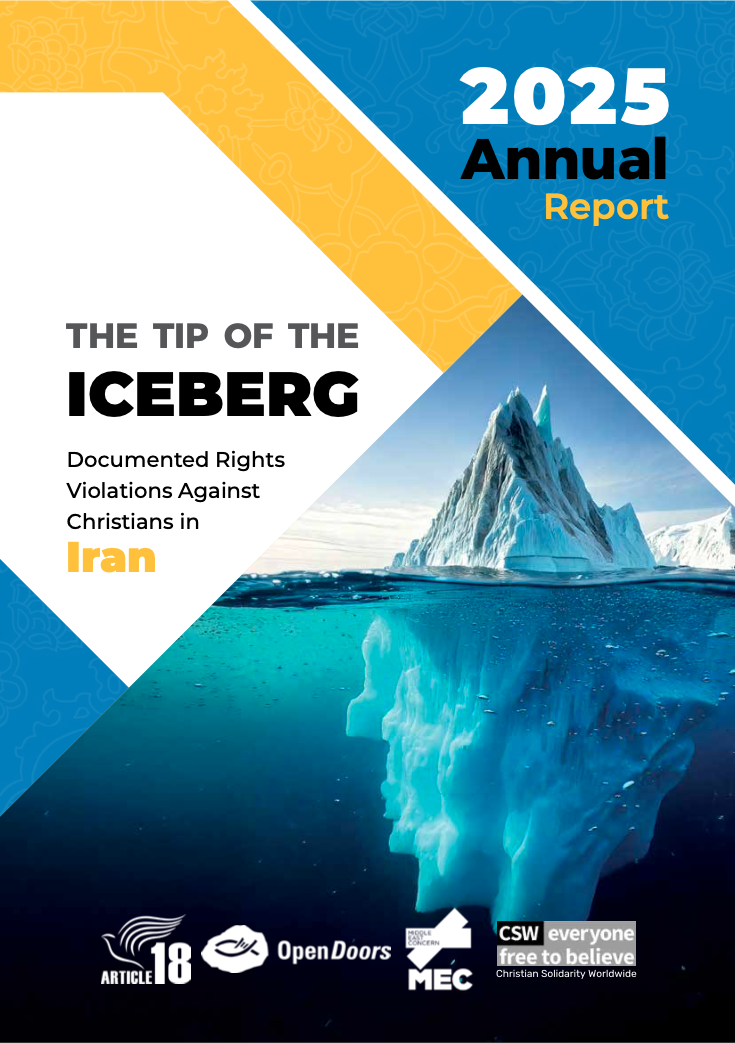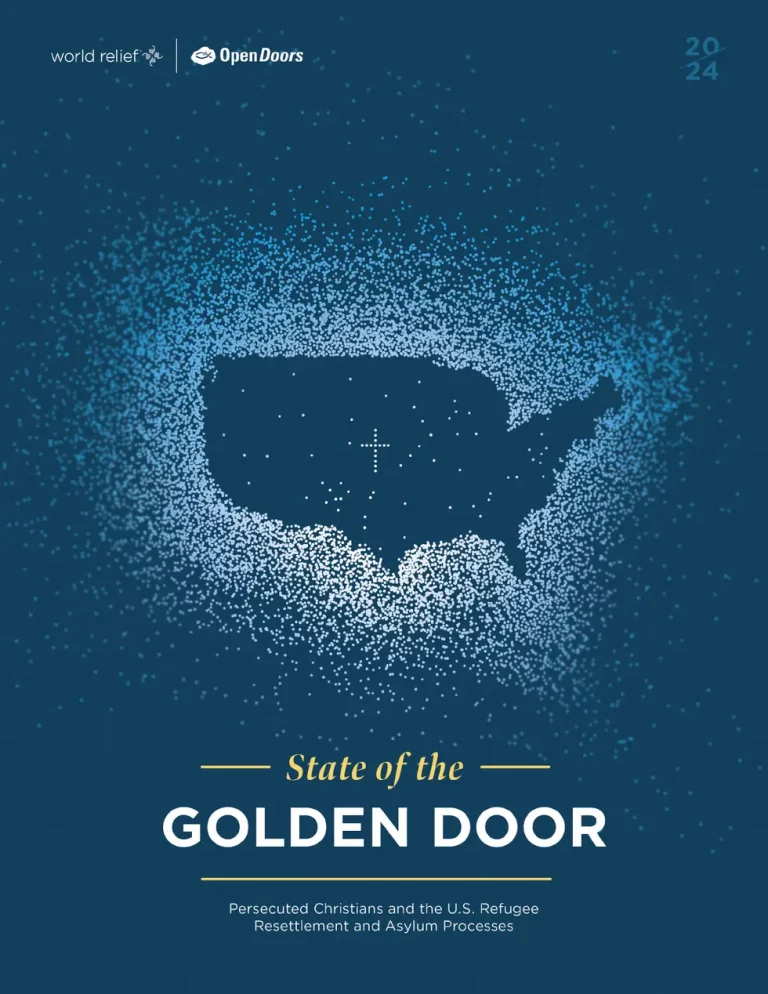The Georgian immigration authorities consistently refuse the asylum claims of Iranian Christians, despite their well-founded fears of persecution should they return home.
That is the conclusion of a new joint report by Article18, CSW, Open Doors and Middle East Concern, based on in-depth interviews with the asylum-seekers and their legal representatives.
“The asylum-seekers therefore face an uncertain future, with little hope of being recognised as refugees but having few alternative options to access international protection,” the report says.
“Several individuals whose asylum claims have been rejected in Georgia have already spent years as refugees in neighbouring countries such as Turkey, and say they no longer know what to do, nor where to go.
“They appeal to the Georgian authorities to recognise the legitimacy of their claims, and to the international community to open up new safe, legal routes for resettlement.”
Nearly one-fifth of all asylum-seekers in Georgia are Iranian, the report notes, while around 90% of their claims are based on a purported conversion to Christianity and resulting fears. However, over the past three years, less than 1% of the more than 1,000 Iranians who have claimed asylum – on whatever grounds – have received positive answers from Georgia’s immigration service.
There are a variety of reasons for the rejections, the report suggests, including Georgia’s “burgeoning relationship with Iran” and “intolerance of expressions of Christianity other than Georgian Orthodox”, “and the consequence is that several hundred Iranian Christians currently seeking asylum in Georgia have little hope of being permitted to remain in the country for long”
In the majority of cases, claims are rejected on the basis that their faith is found not to be genuine. But in the cases of two individuals featured in the report, Pastor Reza Fazeli and Amin Zangeneh Zad, their claims were rejected even though their faith was accepted.
“Praise the Lord, I was the first person to be recognised that way!” Reza said. “But after that, they said: ‘You won’t have any problem in your country. You can go back.’”
Amin told a similar story: “[The immigration department] said: ‘You’re a Christian, OK, but even though you’re a Christian, even though you do evangelism, we believe you’re not in any danger In Iran,’” he said. “I was shocked, because how can they say so? I have translated more than five theology books into Persian, and my name is written on them, and they said: ‘OK, you did this but it’s not dangerous for you [to go back].’”
The wording in both Amin and Reza’s rejection letters were strikingly similar, the report notes.
“It is like it is the same letter for all Iranian Christians,” another rejected asylum-seeker, Hadi Pourmohammadi, said. “Just, they took my name [out] and put [my friend’s] name in.”
As a result, the report says “there is a growing sense of hopelessness among Iranian Christian asylum seekers in Georgia, who feel increasingly doubtful about their chances of being granted refugee status, and equally uncertain about other options available to them”.
“I don’t want to pursue my asylum case anymore,” said Amin. “I’m really tired. I cannot live this way anymore. I’m trying to find another country to go to – anywhere I can survive – but so far, I haven’t found any.”
Another asylum-seeker who had already spent nearly a decade in Turkey before moving to Georgia, Sasan Rezaee, said he was “so tired” he has even contemplated returning to Iran and accepting “whatever punishment they may give me”.
“My body and my soul cannot stand this pressure much longer, but what can I do?” he said. “I can’t stay here in Georgia. I can’t stay in Turkey. I don’t want go to Armenia, and I don’t want to go back to my country. But if they reject me here and I don’t have access to go to another part of the world, I will return to my country, because I’m tired of the asylum seeker situation. I’m so tired. I even think of suicide sometimes.”
Meanwhile, Hadi Pourmohammadi, who had also previously spent years in Turkey, said he no longer trusts the UN’s refugee agency to help him:
“I know I will have to leave Georgia very soon, but the problem is, it’s nine years now I’ve been with the UNHCR in Turkey and Georgia; nine years I’ve been a refugee. So it would be very hard for me to go to another country and apply again with the UNHCR. I can’t trust the UNHCR anymore. I don’t know what to do.”
Another asylum-seeker who was forced to leave Georgia earlier this year after the rejection of his claim, Iliya Rahnama, said he sometimes wonders whether Iranians are treated less fairly than others:
“What was our mistake? Most countries talk about freedom of religion. OK, I was Muslim and in 2012 I believed in Jesus Christ. Was that a mistake? Sometimes, I am confused why Europe, the USA, and other countries can’t understand about Iranian Christians. Why do they close their eyes?
“Did we say [to other countries]: ‘Give us a house! Give us a car! Give us money!’? No, just we say: ‘Please accept us, we want just to continue our life, we want just freedom. We want just to go to church. We want just to continue our life.’ Please come and see our situation. Please open your eyes. Please have mercy. Please get justice for us.”
“The world needs to do something for refugees,” Hadi added. “Refugees and Iranian Christian refugees are people who come out of Iran and always miss everything. They miss their families; they miss their streets, their people, their shops. I also miss the food, the friendships; everything from Iran.”
The report concludes with recommendations for the Georgian authorities and international community.
The Georgian authorities are advised to:
- “Ensure those responsible for immigration matters conduct a more thorough refugee determination process”;
- “Recognise the diversity of Christian belief … when assessing the authenticity of a religious conversion”;
- “Refer to the reports by the UN Special Rapporteur on Iran, among others, when assessing the situation of Christians in Iran and determining whether asylum claimants have a well-founded fear of persecution if they were to return”.
The international community is advised to:
- “Make urgent representations to the Georgian authorities regarding the plight of Iranian Christian asylum seekers”;
- “Initiate new safe and legal routes for Iranian Christians to be resettled”;
- “Increase efforts to ensure Iranian Christians who flee their country on account of religious persecution – or fear thereof –are protected and swiftly resettled”;
- “Strengthen regional protection mechanisms to ensure the continuing presence of Iranian Christians in the Middle East and Caucasus.”




0 Comments
Trackbacks/Pingbacks